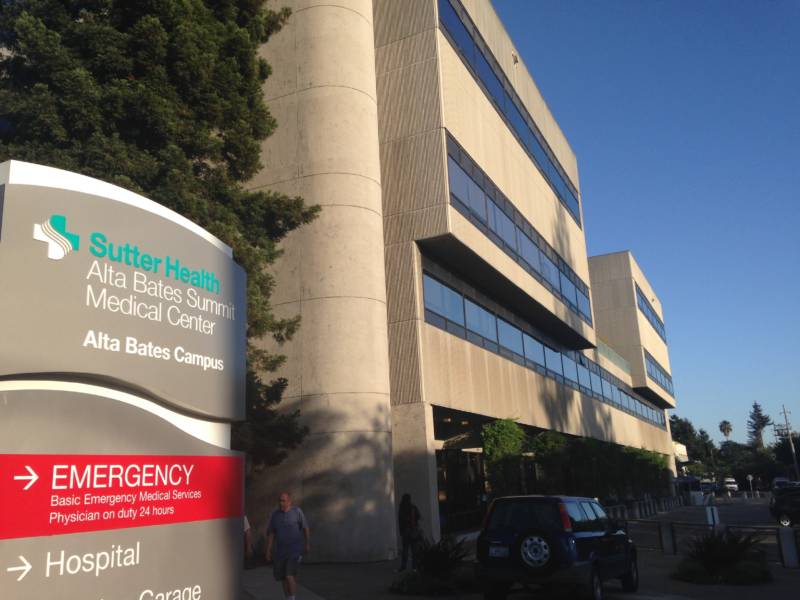Sutter Health, a nonprofit based in Sacramento, runs more than 25 hospitals across Northern California. The 110-year-old Alta Bates Hospital merged with Summit, part of Sutter Health's chain, in 1999.
Many hospital systems are choosing to completely rebuild their inpatient facilities to be compliant with state seismic standards. But Alta Bates is in a residential neighborhood in south Berkeley, and Sutter said that the hospital can't be rebuilt at its current location because "the existing facility would need to be closed and demolished to make room for a replacement, which would result in loss of care to the community for a decade."
Instead, Sutter says it plans to make the Alta Bates campus a hub for outpatient services, which are not subject to the strict seismic standards that inpatient facilities are.
The ramifications of Alta Bates' closure will be felt well beyond Berkeley and Alameda County. Last year at this time in the Contra Costa County city of San Pablo, Doctors Medical Center closed and took more than 20 emergency department beds with it. People north of Berkeley from Richmond to Vallejo had relied on the safety-net hospital.
One of the hospitals that absorbed patients after the shutdown was Alta Bates, already a distance for people who live in heavily trafficked communities on the Interstate 80 corridor.
Contra Costa Supervisor John Gioia echoed Arreguin's concerns about timely care.
"It basically will mean for some patients, it will take longer to receive hospital care," he says. "It could have negative outcomes in the case of those who need to be in the hospital quicker. Every minute counts, right?"
In its statement, Sutter pointed out that Summit was "less than 3 miles away" from Alta Bates. But Alta Bates is on Berkeley's southern edge -- easily a 20-minute drive for people who live on the north side, much farther still for people coming from 10 miles north in Richmond.
"(Sutter) is looking at this from the standpoint of those two hospitals alone," Gioia says, "but the emergency medical system is just that, a system, and this closure will definitely impact the emergency medical systems in Alameda County and also West Contra Costa County."
Over the last several years, Sutter has moved Alta Bates' cardiac, stroke and rehabilitation services to its Summit Oakland campus.
The Berkeley City Council has directed both its Community Health Commission and the Disaster and Fire Safety Commission to assess the impact of Alta Bates' closure and make recommendations to the council.
Amy Mostafa contributed to this report.
